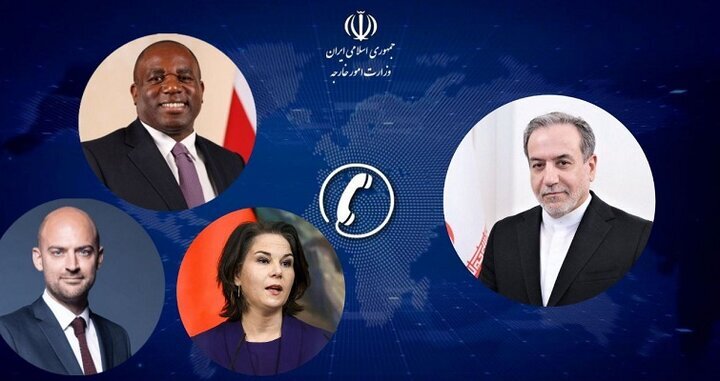More severe response awaits Israel in case of escalation of conflicts: Iran FM

TEHRAN – Iran's Foreign Minister, Abbas Araqchi, announced on Wednesday that the Islamic Republic's retaliatory operation against Israel has officially concluded; however, he warned that any counter-response by the Israeli regime would provoke an even more intense reaction from Tehran.
In a series of phone calls with his German, French, and British counterparts, Araqchi discussed the situation, particularly Iran's reaction to ongoing Israeli aggression. He referred to the assassination of senior figures, including Hamas leader Ismail Haniyeh in Tehran, and Israel’s continued military activities in the region.
The foreign minister highlighted that Iran had exercised restraint for over two months before launching its missile strikes, emphasizing that the attacks were carried out in accordance with Article 51 of the United Nations Charter, which grants the right to self-defense.
Araqchi clarified that Iran’s recent strikes exclusively targeted military and security installations within Israeli-controlled territories, and no civilian areas were involved. He stressed that while the operation has now concluded, Tehran is prepared to unleash a more severe response should Israel choose to retaliate.
"Iran does not seek to escalate tensions or initiate further conflict," Araqchi stated. "However, we are not afraid of war, and any retaliatory actions will be met with a more forceful response."
The Iranian foreign minister also issued a stark warning to any third-party nations considering interference, urging them to avoid becoming involved in the conflict. He called on regional and international actors to prevent Israel from continuing its military actions, particularly in sensitive areas such as Lebanon and Gaza.
Earlier in the week, Iran's Islamic Revolutionary Guard Corps (IRGC) launched a missile barrage against Israeli military installations in retaliation for the assassinations of Haniyeh, Hezbollah leader Sayyed Hassan Nasrallah, and Iranian commander Abbas Nilforooshan. According to Iranian sources, nearly 90% of the missiles hit their intended targets in the occupied Palestinian territories.
Leave a Comment